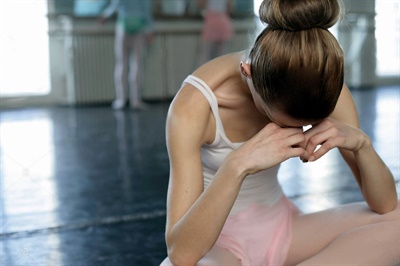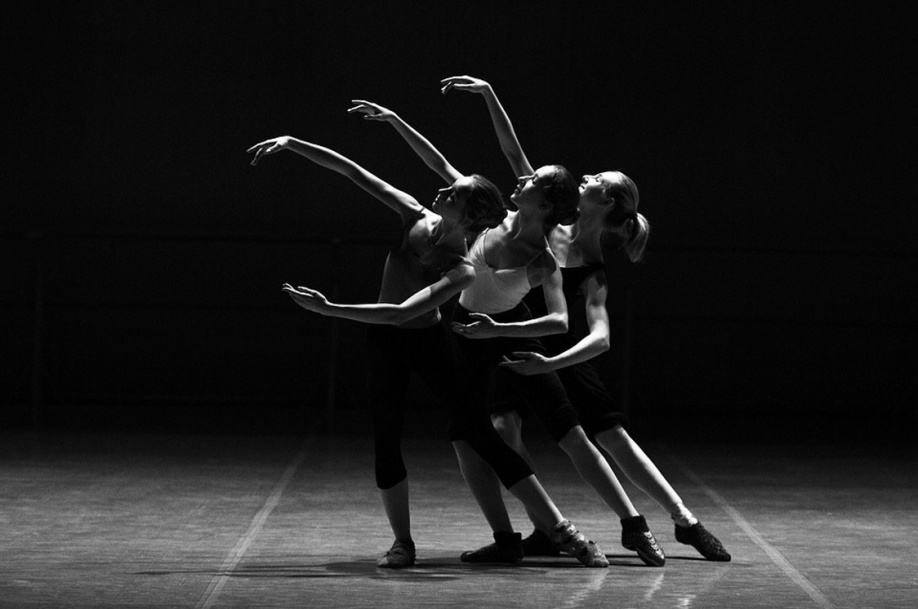Baila Blog, Ballet, Breakdancing, Contemporary, Hip-Hop, Latin, Salsa, Tango, Argentine Tango, Ballet, Contemporary Dance, Interviews, Dancer, Dance
Why do some talented dancers ultimately "fail"?
 This article, which refers to the lives of young dancers in America and the difficulties they face in their attempt to establish themselves in the field, reflects the general difficulties faced by dancers worldwide, even in countries like Greece, where there are new talents, who, however, even after significant and recognized studies, do not ultimately reach the point they should have or had imagined. The efforts of young artists, often, if not most of the time, in addition to the various difficulties, technical and others, encounter various obstacles and are often thwarted. What is important is, on the one hand, the achievement of individual goals, on the other hand, the effort and the way in which each artist faces these difficulties, but also Art in general and what it offers on a human level.
This article, which refers to the lives of young dancers in America and the difficulties they face in their attempt to establish themselves in the field, reflects the general difficulties faced by dancers worldwide, even in countries like Greece, where there are new talents, who, however, even after significant and recognized studies, do not ultimately reach the point they should have or had imagined. The efforts of young artists, often, if not most of the time, in addition to the various difficulties, technical and others, encounter various obstacles and are often thwarted. What is important is, on the one hand, the achievement of individual goals, on the other hand, the effort and the way in which each artist faces these difficulties, but also Art in general and what it offers on a human level.
Since its inception in 1999, more than 80,000 classical dancers have participated in its events. Youth America Grand Prix. While more than 450 graduates are currently dancing in dance companies around the world, the vast majority of dancers never reach this professional level.
“You can have the best teacher in the world, the best work ethic, and be completely dedicated, but still not succeed.”, says its founder YAGP, Larissa Saveliev. “I have seen so many extremely talented dancers not have enough motivation and mental strength, not have the right body type, not get to the right group at the right time, or get injured at the wrong time..”
While we often talk about the few dancers who manage to make their dreams come true, there is much to learn from the much larger group of dancers who don't get there. Why do some talented dancers never reach a point worthy of their potential?
“It's not about talent – it's about personality and perseverance”, says the Ray Leeper, director of NUVO Dance Convention.
– The problem: Insufficient preparation
After graduation, most new dancers spend a year or two preparing for auditions or working. This gap can be confusing down the road, and many new dancers – and their parents – don’t have a realistic idea of what to expect. For example, what should your schedule and priorities be when you’re in audition season or between jobs? What will a transition year or two cost?
The Solution: Listen to a counselor
Look for a trusted professional or former professional dancer who can answer your questions and act as a guidance counselor. Someone who can help you understand and evaluate whether this career is for you. The important thing is to find someone who wants to help, who has the information and experience, and who can give you the moral support you need.
– The problem: Financial stress
Not everyone has the opportunity to have stable financial support during and/or after their studies to stay focused on their goal. It is logical that a situation of constant financial uncertainty can cause stress.
The Solution: Find a job in the field
Working as a dance teacher will likely give you more flexibility to keep up with classes, stay in shape, try out, and audition.
– The problem: Disappointment
For young dancers who are used to praise, the biggest shock can be that the professional world is full of rejection, Leeper says. “Many dancers break down when no one tells them they are great anymore”He may become frustrated, lose his self-confidence and this may lead to continuous professional failures.
The solution: Stay open and say yes
The truth is that dancers who think they are amazing are unlikely to improve. “You have to be open to correction, be open to not knowing and to gaining additional knowledge”, advises the Susan Jaffe, head of Dance Department of the School of Fine Arts, University of North Carolina. “You need to focus on your “artistic self-development” even if you are already a professional”. Failure, e.g. in an audition, is a normal part of the process. Don't let it diminish the value of your effort and your goals.
– The problem: Disorientation
“People are disconnected from the information they receive because they are constantly focused on their mobile phones. It seems that there is very little time in everyday life for rest, reflection and imagination.”, says the Jaffe. The waste of time created by comparing yourself to the stars on Instagram will make you feel inadequate. “Everything seems like it has to happen incredibly fast when you compare yourself to someone else’s success on social media.”, says the Leeper.
The Solution: Focus on what's important
Personal face-to-face contacts will help you stay grounded and focused on your goal. “Disconnect from the noise of the environment, associate with people who are healthy and productive, and find your place in society”, says the Leeper. “Go to performances, talk to other dancers after class, and meet a new person at every event or class you attend.”.
– The problem: Apathy
“It doesn’t matter how beautiful the execution of a step is, that’s not everything,” says Jaffe. “Being a professional means going deeper and deeper and becoming much more open, developing your emotional connection, coordination, musicality, willingness and creativity”However, when you are not in a structured training program or group, it can be tempting and easier to try to escape, to no avail.
The solution: Make a schedule
Stay disciplined by holding yourself accountable. “Plan, give yourself a real schedule,” advises Leeper. “In class, don't just perform the movements. Apply each teacher's corrections, stay present and curious.”
– The problem: a serious injury
“A serious injury at a bad time can throw unprepared dancers off course”, says the Saveliev. It can force you to get out of your routine, which can lead to depression. Without a long-term vision for your return and a plan for how to use all the free time that comes with not being able to exercise due to your injury, it can push you to give up.
The Solution: Focus on Art
Think about ways you can develop the mental and emotional strength that recovering from an injury requires. “Help yourself by watching the arts. Listen to music, visit museums”, says the Jaffe. “When you have many interests and constant search in life, you will be able to convey that to the public”. Nothing should be lost in the time you spend. If you use your time positively you will come back stronger.
– And if you still don't manage to become a professional dancer?
“It is never a failure, there are just different paths”, says the Saveliev. “It is not necessary for everyone to climb the same mountain.” The life of a professional dancer It is ultimately not for everyone, but the results of the painstaking process of dance training can be successfully applied to any other profession.
Article source: dancetheater.gr
Candice Thompson, www.dancemagazine.com

